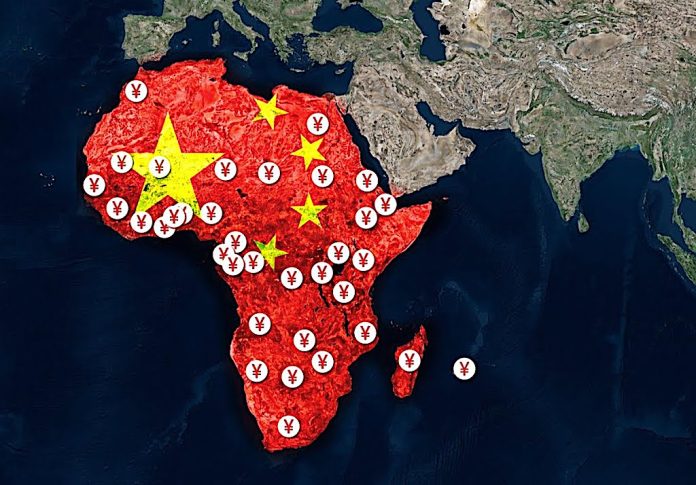The International Monetary Fund (IMF) has issued a warning to Nigeria and other Sub-Saharan African countries regarding the potential risks associated with their close economic relationships with China. This warning comes at a time when reports indicate that Nigeria’s debt to China has increased to $4.73 billion as of June 30, 2023, up from $3.93 billion as of June 30, 2022.
The debt owed to China primarily consists of concessional loans that the Nigerian government secured to fund various infrastructure projects, including power generation, railways, water supply, airport terminals, agricultural processing, and communication.
China has become a significant economic partner for Nigeria, with bilateral trade between the two countries increasing substantially in recent years. Nigeria is now China’s third-largest trading partner in Africa, and China is Nigeria’s largest source of imports.
However, the IMF’s latest Regional Economic Outlook, released in October 2023, expresses concerns about the vulnerabilities that Sub-Saharan African countries, including Nigeria, may face due to their close economic ties with China. The IMF points out that the recent slowdown in China’s economic growth could have adverse effects on its trading partners in Sub-Saharan Africa, including Nigeria.
The IMF notes that while China has been a major source of funding for infrastructure projects in African countries, particularly Nigeria, there are potential risks associated with this economic relationship. China’s changing economic landscape, slower growth, and reduced risk appetite have led to concerns about the future of financial support for African nations.
In addition to concerns about the amount of Chinese loans extended to Sub-Saharan African countries, the IMF highlights issues related to China’s foreign direct investment (FDI) in the region. The IMF cautions that China’s shift away from direct infrastructure financing toward more trade credit could impact African countries’ debt vulnerabilities.
The IMF also raises concerns about the terms and conditions of Chinese loans, including the use of natural resources as collateral. It notes that there is a lack of standardization and transparency in public debt documentation because Chinese lenders do not consistently document loans to individual overseas borrowers, leading to data gaps.
Sub-Saharan African countries that are already in debt distress or at high risk of debt distress account for a significant portion of their total public debt owed to China. Debt restructuring negotiations for some of these countries have been slow and challenging.
The IMF emphasizes that the ongoing slowdown in China’s economic growth could have negative spillover effects on Sub-Saharan Africa, primarily through trade links, such as declining export volumes and commodity prices.
To mitigate these risks, the IMF recommends that Sub-Saharan African countries adapt to evolving economic ties. This includes increasing regional trade integration, strengthening policy frameworks to reduce macroeconomic vulnerabilities and external reliance, promoting economic diversification, and undertaking reforms to create favorable business environments.
However, some economists and financial analysts suggest that Nigeria may not be at significant risk due to its economic ties with China. They argue that Nigeria has more pressing internal economic issues to address, such as rising debt levels and high debt servicing costs. They also point out that IMF forecasts are not always stable, and it’s essential for Nigeria to focus on its immediate economic challenges.
In summary, the IMF’s warning about the risks associated with close economic ties with China raises concerns about the impact of China’s economic slowdown on Sub-Saharan African countries, including Nigeria, but opinions on the extent of this risk vary among experts.

